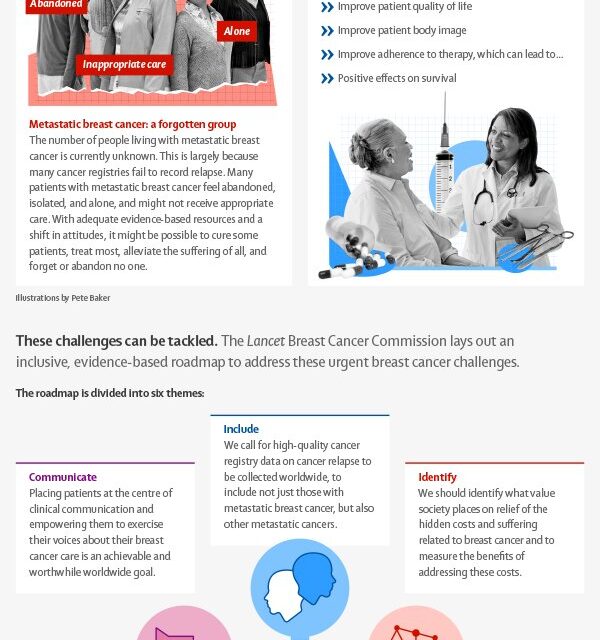Breast cancer has emerged as the world’s most common cancer, marking a significant global health challenge that demands immediate attention. Despite advancements in research, treatment, and survival rates, millions of patients continue to face systemic disparities, with many left marginalized and overlooked. A groundbreaking Lancet Commission report underscores the pressing need to confront these inequities head-on and revolutionize breast cancer care on a global scale.
Published in The Lancet, the comprehensive report reveals the stark realities of breast cancer, drawing attention to hidden costs, unmet needs, and enduring suffering experienced by patients worldwide. Led by Professor Charlotte Coles from the University of Cambridge, the Commission offers a multifaceted analysis of breast cancer disparities and presents a roadmap for transformative change.
One of the report’s key revelations concerns metastatic breast cancer (MBC), a condition often shrouded in neglect and isolation. Despite significant progress, data on the prevalence of MBC remain scarce, hindering effective treatment and support for affected individuals. The Commission calls for urgent action to address this data gap, emphasizing the critical need for improved patient care and societal inclusion.
Furthermore, the report sheds light on the multifaceted costs of breast cancer, spanning financial, physical, psychological, and social dimensions. Many of these costs remain inadequately measured and unaddressed, perpetuating the cycle of suffering for patients and their families. The Commission advocates for the development of new tools and metrics to expose these hidden costs and inform targeted interventions.
Enhancing patient-health professional communication emerges as another vital intervention highlighted by the Commission. By empowering patients and fostering open dialogue, healthcare providers can improve quality of life, treatment adherence, and overall patient outcomes. The report underscores the importance of communication skills training for healthcare professionals and emphasizes the need for patient involvement in all stages of clinical research.
Moreover, the Commission underscores the critical role of prevention and early detection in mitigating the burden of breast cancer. Bold policy changes, coupled with systematic approaches to identify high-risk individuals, are essential to minimize cancer incidence and promote equitable access to personalized prevention strategies.
Professor Benjamin Anderson, a key contributor to the report, emphasizes the urgency of implementing the Commission’s recommendations to bridge the breast cancer equity gap. Through global collaboration and decisive action, decision-makers can accelerate progress toward achieving universal health coverage and ensuring equitable access to evidence-based care.
As breast cancer continues to exact a heavy toll on individuals and societies worldwide, the Lancet Commission offers a beacon of hope, advocating for transformative change to improve the lives of millions affected by this devastating disease.











